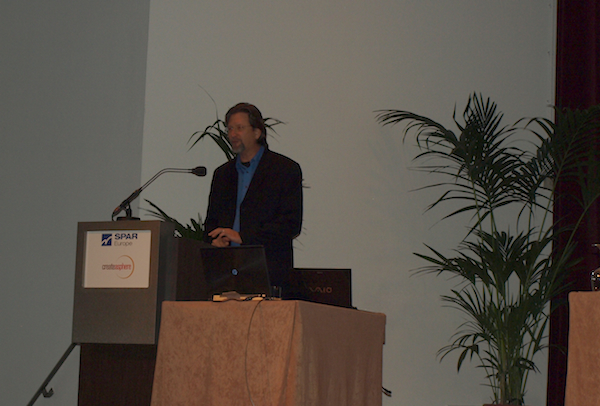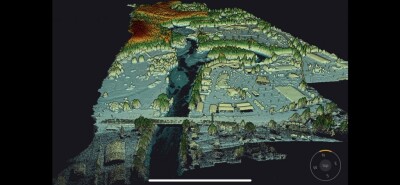SPAR opening keynote highlight’s technology’s transformative power
THE HAGUE, The Netherlands – Many attendees’ minds are still spinning from this morning’s highly stimulating keynote presentation by Ed Lantz, President and CTO of Vortex Immersion Media, at the second annual SPAR Europe here. Lantz, whose company specializes in large-format immersive and digital experiences (e.g. digital domes), pointed to a raft of new technologies that “are going to fundamentally change our lives,” by converting bits to transformative experiences.
According to Lantz, whose presentation bridged the interests of delegates attending both SPAR Europe and sister organisation Creatasphere’s Digital Asset Management conference, the transformation to an “experience economy” has been happening in many marketplaces, through new developments such as multisensory immersion, personal affinity sharing, mediated storytelling in virtual worlds and gesture interactivity. The latter in particular “is really bursting forth into the marketplace” thanks especially to Kinect. “We now have a $15,000 3D camera for $150,” observed Lantz.
One of the most exciting developments for him is the emergence of so-called “Mixed reality” (MR) via the kind of augmented reality services we have written about before on SPAR, spatial immersive displays (e.g. wraparound screens) and multitouch displays, such as Microsoft Surface, that make tables, walls and so on repositories for data that people can manipulate with touch.
“Virtual worlds offer possibilities that the real world cannot,” said Lantz. He sees the meeting of virtual and real worlds as “the next big thing.” In the movie world this will see movies becoming extraordinarily personalized and heading in the direction of roleplaying games: Next generation cinema will be an interactive experience, not a feature film, incorporating the likes of 4D theater effects, holographic displays and holographic audio.
Media experiences are becoming more powerful, consumers are increasingly co-creating content and emotions and storytelling are playing a central role, suggested Lantz. “The really interesting part of storytelling is the affective: the interface to the emotions. You can alter someone’s ‘possibility space’ or life path with a meaningful experience.”
He concluded with a rallying cry for all 3D and other next gen content creators and data capturers: “The eyes and ears are a wide band interface to the brain: Let’s maximize the bandwidth.”






